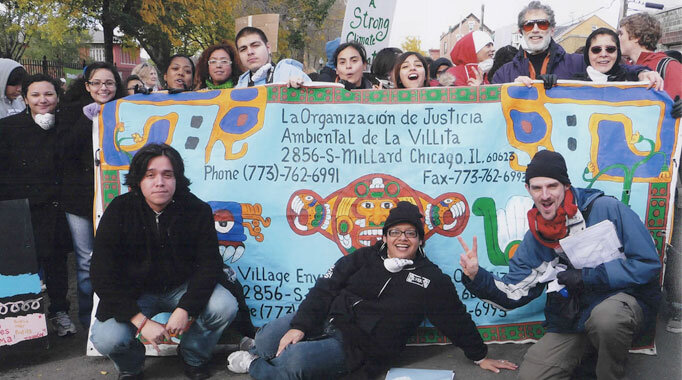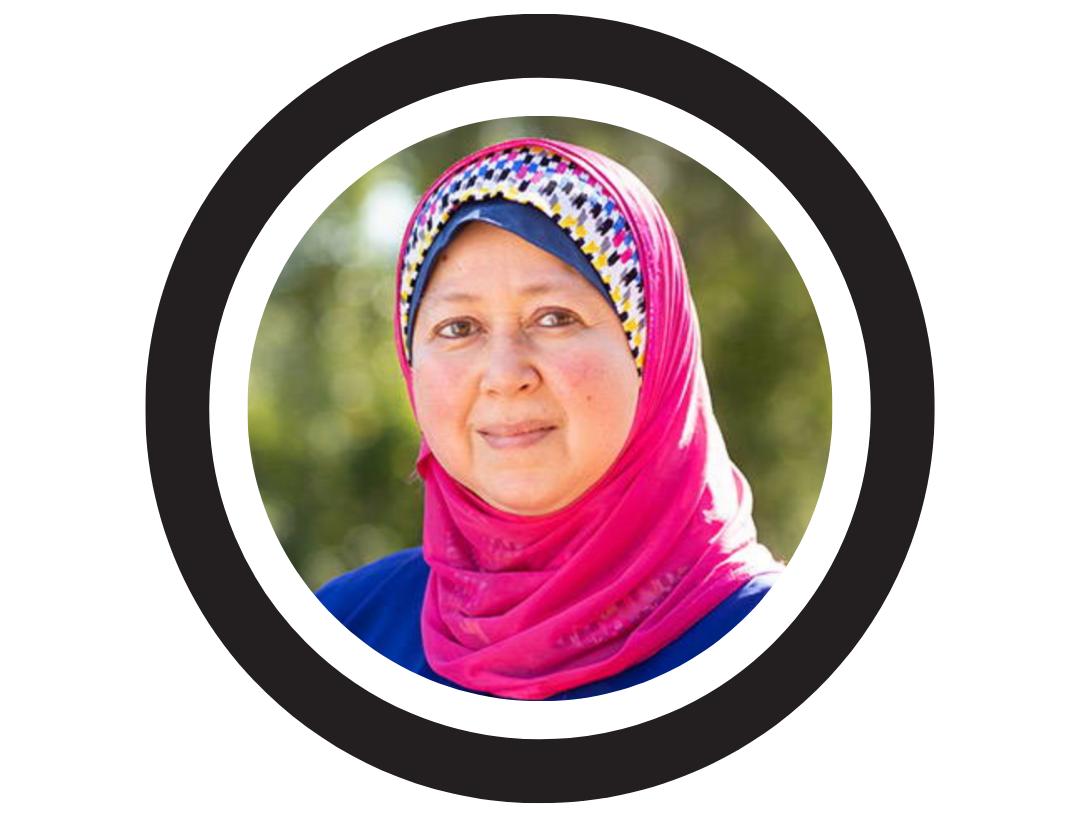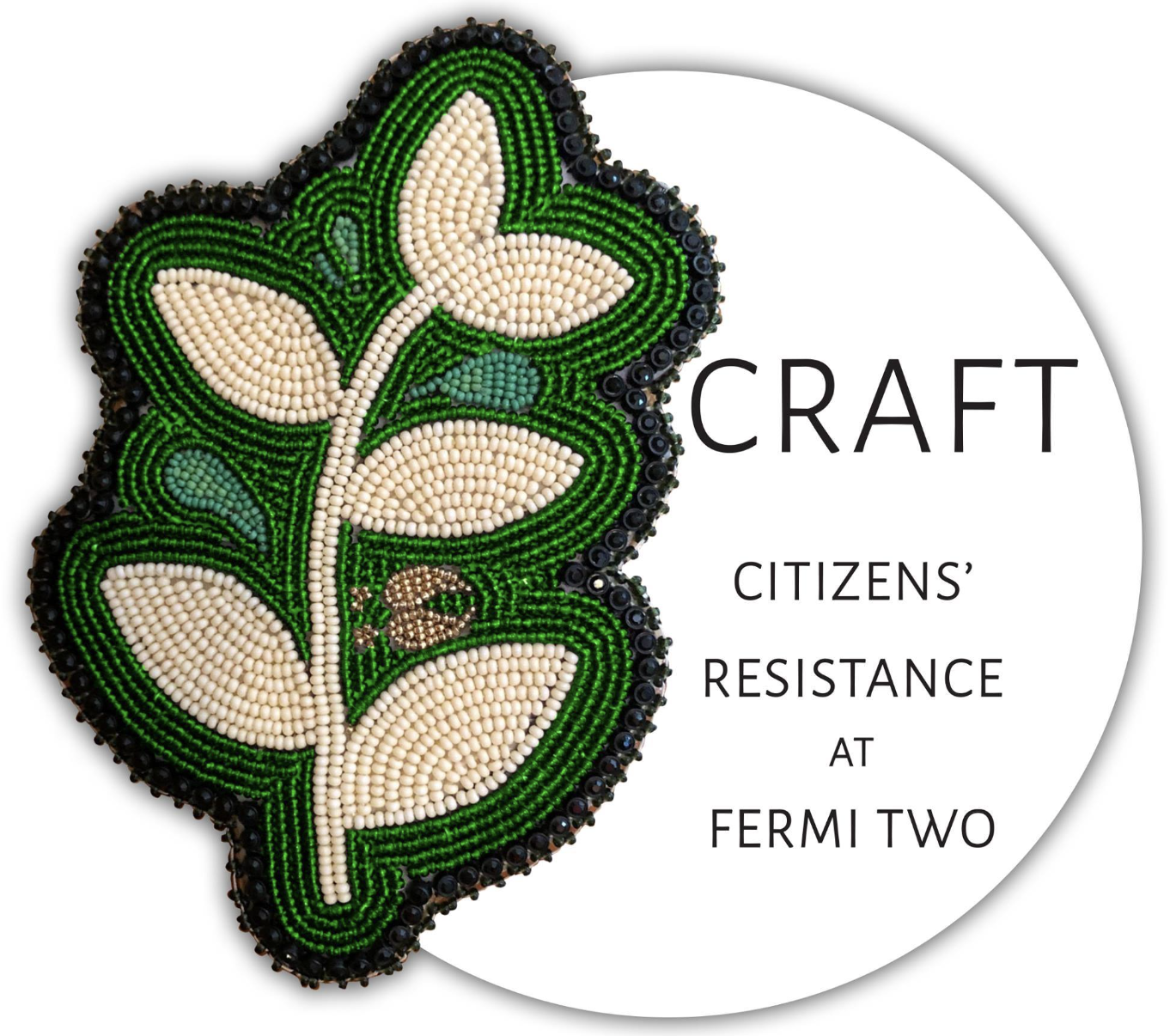
Midwest Frontline Fund
The Midwest Frontline Fund provides general operating grants to grassroots and frontline environmental justice organizations throughout the midwest. Since 2016, MWEJN has supported over 70 environmental justice organizations totaling $6 million in grants.
The Midwest Frontline Fund Advisory Circle
The Frontline Fund is guided by an Advisory Circle made up of grassroots leaders in the Midwest. The Circle informs organizational eligibility, selection criteria and priorities, and serve as ambassadors for the Fund. Final funding decisions are made by the Midwest Environmental Justice Network Leadership Team.
Advisory Circle Members
-
The Executive Director of Just Transition Northwest Indiana (JTNWI), helping to found the nonprofit in 2020, which is organizing to achieve a just transition beyond the carbon-based, extractive economy of today to a renewable, regenerative future in the region, where everyone can thrive. Ashley grew up in Ottawa, IL, which has been treated as a sacrifice zone by the frac sand mining industry. Now residing in Michigan City, IN, she is passionate about ensuring a just and equitable transition for her community and the impacted workforce as they prepare for the retirement of the local coal-burning plant. Ashley also serves on the executive board of the NAACP Michigan City Branch 3061 and the Soul Power Advisory Committee, building community wealth and access through solar and energy efficiency job training opportunities.
-
Gloria J Lowe (she/her) is the founder and president of We Want Green Too which has served veterans and returning citizens for over 14 years. Gloria is an Executive Board Member of the Michigan Environmental Justice Coalition. Gloria has been a community activist on the frontline for well over 35 years and continues to work to move the Detroit community forward. Lowe is passionate about the veterans she works for, community solar, and retrofitting homes for energy efficiency.
-
A dedicated storyteller, fiber artist and grassroots organizer based in Flint, Michigan. They were one of the co-founders of the Flint Democracy Defense League, a grassroots group formed to confront Flint's emergency manager in 2011. They have over fifteen years experience organizing local, state, and national electoral and issue campaigns.Nayyirah has spoken on on multiple college campuses and presented at conferences on drinking water policy and the origins of the Flint water crisis. They have been featured on multiple shows, podcasts, and documentaries including Michael Moore’s “Fahrenheit 11/9”. Nayyirah has also worked in the areas of public health research, youth and neighborhood development, facilitation, and public policy. They are currently the director of Flint Rising, a coalition of Flint residents and community groups, labor, and progressive allies that formed in the aftermath of Flint's emergency declaration to the water disaster.
-
A grassroots environmental justice organizer and executive director of Rise4EJ. Beto serves to raise community voices in the fight against environmental racism and to overcome systemic exclusion of frontline communities from the decision-making process. His lived experience, growing up fenceline to a petrochemical facility, continues to drive his work at the intersection of climate, environmental justice, and public health.
-
An ecologist, environmental educator, and the founder and director of Wisconsin Green Muslims, a grassroots environmental justice group formed in 2005 connecting faith, environmental justice, sustainability, and healing through education and service. Huda’s higher education degrees are in Conservation Ecology, Sustainable Development, and Science/Environmental Education from the University of Georgia.
-
A Hunkpapa Lakota from the Standing Rock Sioux Nation, she is also a descendant of the Mandan, Hidatsa, Arikara Nations, and the Turtle Mountain Band of Chippewa. In October 2018, Nicole joined North Dakota Native Vote to boost voter education and engagement in response to the North Dakota voter identification law. Nicole is the Executive Director of North Dakota Native Vote and lives in rural Bismarck with her husband John, their three children, and their two dogs.
-
Hailing from Zacatecas, Mexico, Carolina embodies the spirit of resilience and determination. Currently pursuing studies in communications and women’s studies in Minnesota, Carolina’s passion for social justice is deeply rooted in her personal journey as a DREAMer. Her advocacy is not just a vocation but a lived experience, drawing strength and motivation from her own encounters and those of her community. Beginning as a linchpin in the communications team, her unwavering commitment and exceptional abilities have propelled her to the position of Associate Executive Director of COPAL.
-
Graduated from Case Western Reserve University in 2001 with a degree in Sociology (honors), and a minor in chemistry. As the CEO at Environmental Health Watch in Cleveland, Kim has focused on Environmental Justice issues and adverse outcomes of environmental exposures both indoors and outdoors, that disproportionately impact poor and minority communities. During her 20+ years with EHW, she has developed, implemented and managed various local, direct service on the ground grassroots projects, and worked on national projects to bring environmental justice to life.
-
Sikowis Nobiss is Nehiyaw/Saulteaux of the George Gordon First Nation in Saskatchewan, Canada and grew up in Winnipeg, Manitoba, Canada and now lives in Iowa City, Iowa. She is the founder and Executive Director of Great Plains Action Society, a grassroots and fully Indigenous-led organization working throughout so-called Iowa, so-called Nebraska and the Great Plains. Sikowis started her journey fighting for Indigenous rights when she was 19 working at the New Brunswick Aboriginal Peoples Council in Fredericton, NB, Canada during the Burnt Church Rebellion. She has a Masters Degree in Religious Studies and Graduate Minor in Native Studies from the University of Iowa. She is also a speaker, writer, and artist and believes that environmental and social justice work are inextricably linked and change will only happen when we dismantle corrupt colonial-capitalist systems and rebuild them with a decolonized worldview. She fights for a better future for her two children.
-
Executive Director of People for Community Recovery in Chicago, was literally born into her life’s work. Growing up in Altgeld Gardens, a Chicago Housing Authority development on the South Side of Chicago, she saw her mother Hazel Johnson work tirelessly for environmental and racial justice. Cheryl worked alongside her mother since 1985 to bring about environmental awareness not only for impacted communities, but to challenge government and businesses to become creative and innovative to protect the environment.
-
Maggie (Pabaksawiŋ) is Dakota and Anishinaabe. She is an enrolled member of the Turtle Mountain Band of Ojibwe and descends from Spirit Lake Dakota Nation. She has spent her career in the fields of education, cultural resiliency and healing, and environmental justice. Maggie serves as the executive director for Wakaŋ Tipi Awaŋyaŋkapi, a Native-led, Native-run environmental nonprofit in Saint Paul, MN. She also serves on the board of directors for Owámniyomni Okhódayapi, F. R. Bigelow Foundation, and Tiwahe Foundation.
-
Non-profit organizations (501(c)3s and 501(c)4s, organizations with fiscal sponsors) and Tribal governments
Organizations that are rooted in, made up of, and accountable to communities of color, low-income communities, Tribes, and American Indian/First Nations communities who are most impacted by environmental and public health issues will be prioritized
Organizations must work on EJ issues in these 12 Midwestern states: IL, IN, IA, KS, MI, MN, MO, NE, ND, OH, SD, WI and the Native Nations that share this geography
Organizations must be committed to building grassroots power and leadership - we ask applicants to describe how they incorporate the Principles of Environmental Justice as articulated by the Delegates to the First National People of Color Environmental Leadership Summit held on October 24-27, 1991 and the Jemez Principles for Democratic Organizing compiled at the Jemez meeting hosted by Southwest Network for Environmental and Economic Justice (SNEEJ) in Jemez, New Mexico in Dec. 1996.
-
At least 25% go to American Indian/First Nations - led organizations and Tribal governments (we have followed this criteria since 2016 - most years it has been over 25%)
We prioritize renewing grants to existing grantee partners
We aim to balance resources across the region & by issue area
We seek to reach new organizations through relationships with our existing grantee partners and allies in the region
For new applicants in 2024, we are prioritizing organizations with organizational budgets of $1 million and under
Our Grant-making
January 2025 Update-
This year, we will be focusing on renewals of current member organizations. There will be no open application process this year. In the meantime, we will be reconvening our Advisory Circle to consider strategy and process for the 2026 grantmaking cycle. Sign up for our newsletter to receive updates about our 2026 grantmaking announcement.
Organizations that are awarded a Frontline Fund grant become part of the Network, which provides shared learning opportunities and capacity building.












































































